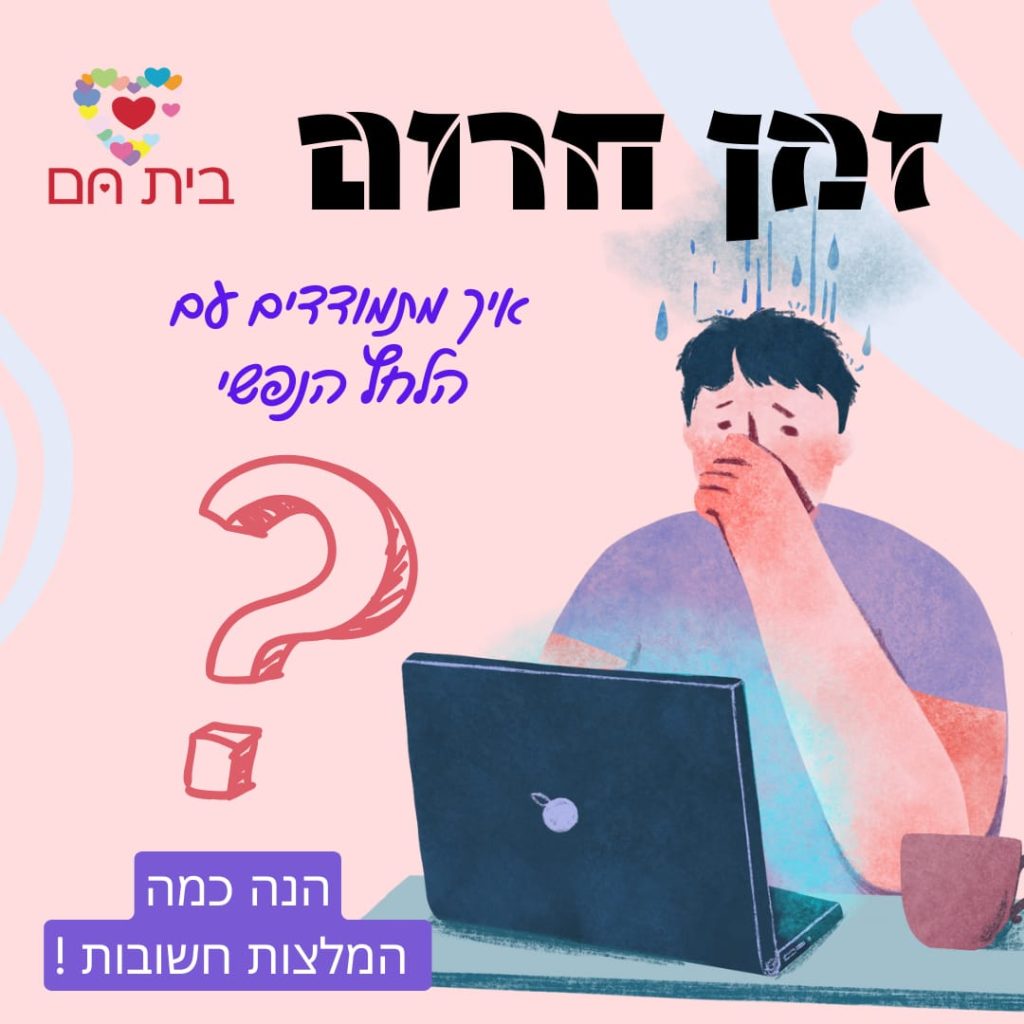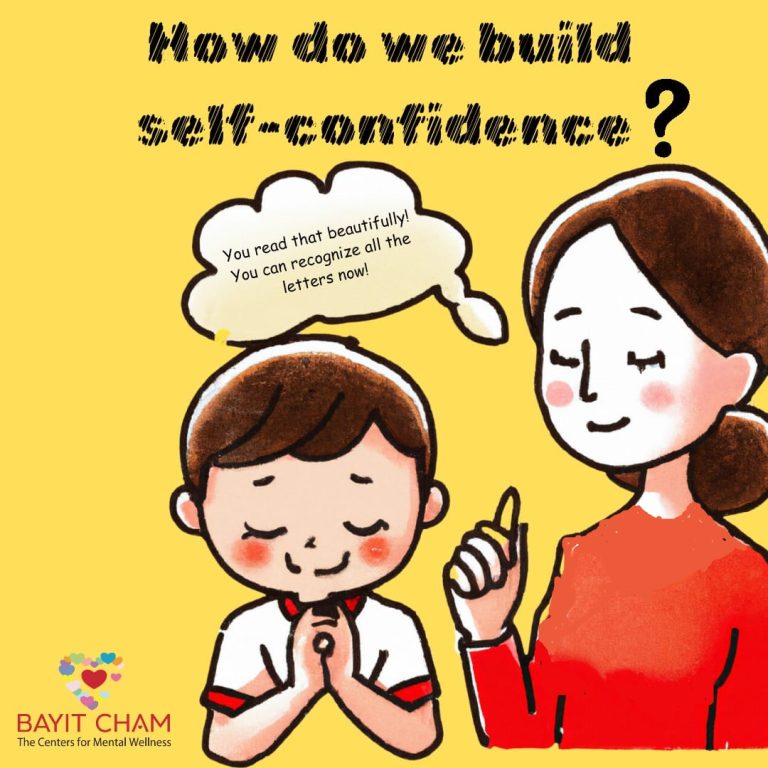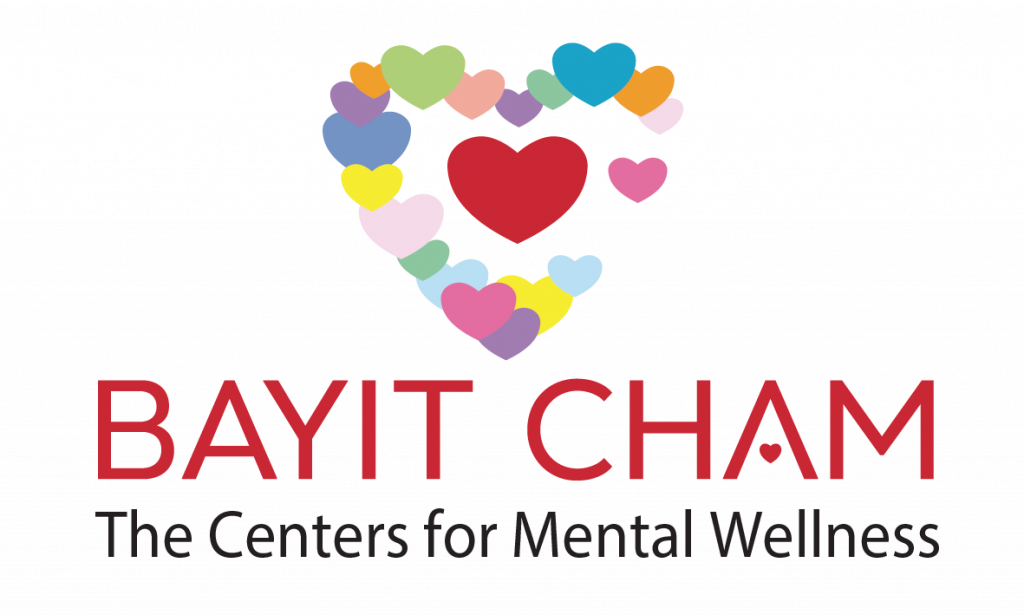In these unbearably difficult days, unfortunately, we all experience pressure and anxiety. Beyond caring for our basic physical needs, and our own and our loved ones’ safety, we all seek to reduce the level of internal chaos that overwhelms us.
How can we do that?
Here are some recommendations from Avi Kannai, an expert clinical psychologist, the clinical director of Bayit Cham’s mental health clinics:
1. Engage in positive action –
Instead of feeling powerless, it is useful to regain a sense of control through various positive actions such as praying, giving tzedaka, helping others, working, or any meaningful activity that makes us feel good. Beyond the recommendation for positive action, steer clear of negativity: limit and filter the flow of information from the media. Do not watch horror video clips; they only do harm and provide no benefit. It is useful to initiate activity and keep on being active.
2. Be strong but not perfect –
We try to be calm and collected, and to convey confidence in front of the children, to get ourselves and others to do what is needed, but we all make mistakes and that’s okay. Give up being judgmental and critical of yourself, accept your reactions and feelings of anger, sadness, fear, etc. with understanding. Remember that this is a normal reaction to an abnormal situation.
3. First take care of you and then others.
It is true that work allows us to feel more in control, but it is also important to be attentive to ourselves and act according to our capability. For example, it is OK to postpone until later or tomorrow any task that is not urgent for right now and that burdens us emotionally.
4. If you are feeling overwhelmed by your emotions, shift your focus to cognition i.e. activate your common sense such as
doing exercises using your five senses: see 5 round shapes in the room, identify 4 different sounds, touch 3 objects,
etc. Allow any “brain”, non-emotional exercise or start a conversation on a topic that is connected to you, your child, or the person around you who feels overwhelmed.
5. If you are having a panic attack, just let it be and it will pass on its own in a few minutes. In these moments, tell yourself
it’s just an anxiety attack. This is normal for the current situation, you are not going crazy and it will soon be over. Take deep breaths.
6. Encourage dialogue and sharing. If your child says “I’m scared”, let him express himself. That’s great! Children or adults
who do not speak about their fears, try to ask and encourage them to open up (without pressure). Say that it’s okay to be afraid (I, too am afraid…), but give him a sense of relative security. That is to say “It’s true that there is what to be afraid of, but we also have a protected area in our home, we pray that Hashem will watch over us and give strength to the army to protect us”, etc.
Today (10.10) marks the World Mental Health Day. One “small” war and here we are well aware… at least there’s already an emerging consensus that emotional resilience is a basic necessity, and not a nice extra.
So, practice the above☝️ and good luck🤞
On this occasion, we share our deep sorrow with the bereaved families, pray for the welfare of those missing and abducted, and send wishes for a speedy recovery to the wounded and above all – express our hope that peace and calm will soon return both in our surroundings and within our hearts! 🙏 ❤






